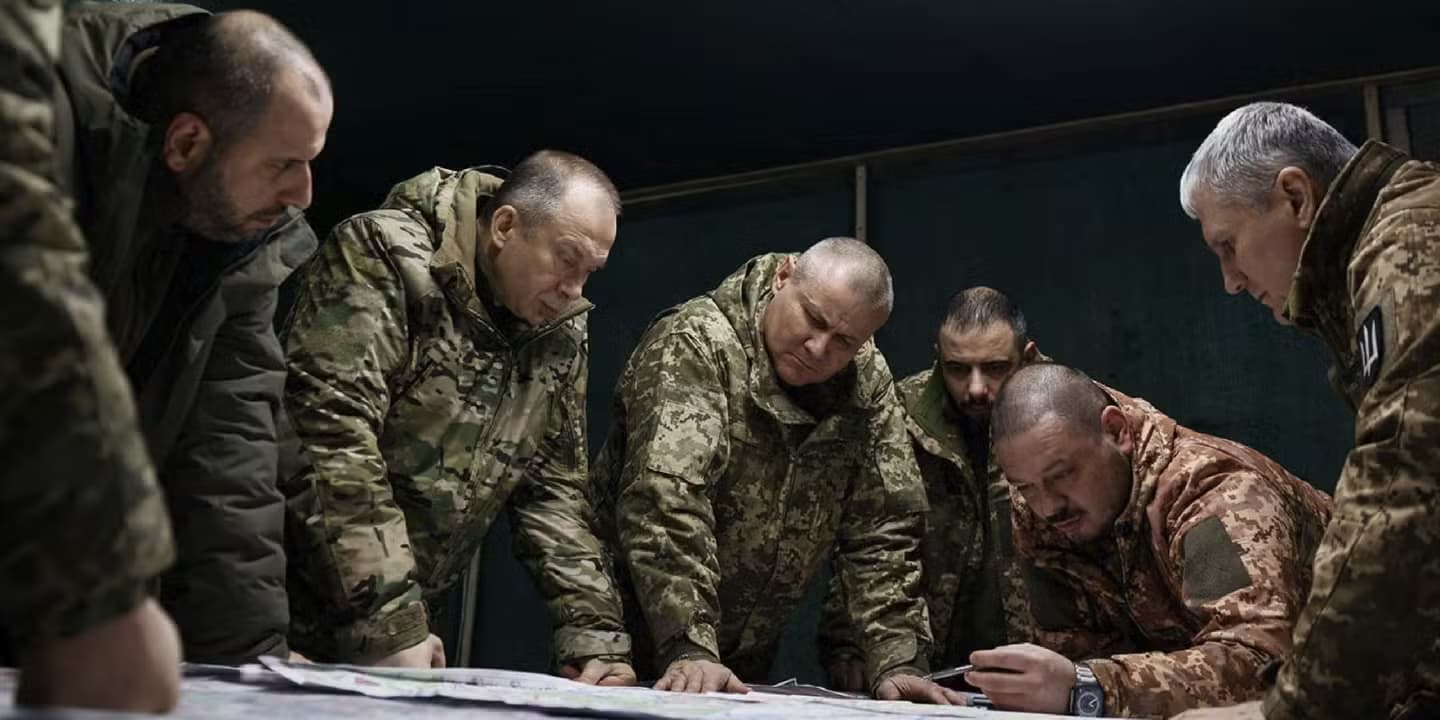We're loading the full news article for you. This includes the article content, images, author information, and related articles.
Kenyan observers are closely watching the escalating conflict in Ukraine as diplomatic efforts falter, raising concerns about global stability and the potential for prolonged humanitarian crises.

Ukrainian soldiers are enduring increasingly brutal conditions at the 'zero line' as diplomatic efforts to resolve the conflict with Russia remain gridlocked. Reports from the battlefield indicate a significant escalation in Russian attacks, leading to what one reporter described as 'new levels of misery' for infantry units. This grim reality on the front lines provides a stark backdrop to the oscillating diplomatic stance of key international players.
The diplomatic landscape has been marked by uncertainty, particularly concerning the position of former US President Donald Trump. While there were initial indications he might support Ukraine with military aid, including Tomahawk missiles, a subsequent phone call with Russian President Vladimir Putin and a contentious White House meeting with Ukrainian President Volodymyr Zelenskyy cast doubt on such commitments. Reports suggest the meeting with Zelenskyy was a 'shouting match,' where Trump allegedly echoed Russian talking points and warned, 'If [Putin] wants it, he will destroy you.'
The conflict in Ukraine, which began in February 2022 with Russia's full-scale invasion, has had far-reaching global implications, including disruptions to supply chains and energy markets that have impacted Kenya. The ongoing diplomatic wrangling underscores the complex geopolitical dynamics at play, with various international actors attempting to navigate a path towards de-escalation while balancing their own strategic interests.
The 'zero line' refers to the immediate contact line between Ukrainian and Russian forces, where intense fighting and artillery duels are commonplace. Soldiers deployed to these areas face constant threats from shelling, drone attacks, and close-quarters combat, leading to severe physical and psychological strain. The protracted nature of the conflict has also led to a depletion of resources and personnel on both sides, exacerbating the challenges faced by those on the front lines.
International law and humanitarian principles are frequently invoked in discussions surrounding the conflict. Calls for adherence to the Geneva Conventions and protection of civilians have been consistent from international bodies. However, enforcement remains a significant challenge amidst ongoing hostilities. The diplomatic efforts, while often appearing contradictory, are aimed at finding a political solution within the framework of international law, though progress has been slow.
Francis Farrell, a reporter for the Kyiv Independent and author of the 'War Notes' newsletter, has provided firsthand accounts of the dire conditions faced by Ukrainian soldiers. His reporting highlights the human cost of the conflict, emphasizing the gruelling stints at the 'zero line' and the increasing lethality of Russian attacks. These testimonies are crucial in understanding the on-the-ground realities often overshadowed by high-level diplomatic discussions.
For Kenya, the prolonged conflict in Ukraine carries several risks. Global food security remains a concern, as both Ukraine and Russia are major exporters of agricultural products. Disruptions to these exports can lead to increased food prices, impacting Kenyan households. Furthermore, the geopolitical instability created by the war can affect international trade and investment, potentially slowing economic growth in Kenya and other developing nations.
The true extent of casualties and the long-term strategic objectives of both Russia and Ukraine remain subjects of ongoing debate and uncertainty. The effectiveness of international sanctions against Russia and the level of sustained support from Western allies for Ukraine are also continuously evaluated. The shifting stances of key international figures, such as Donald Trump, add another layer of unpredictability to the conflict's trajectory.
The immediate future of the conflict hinges on both battlefield developments and diplomatic breakthroughs. While no clear timeline for a resolution is apparent, international efforts continue to seek avenues for dialogue and de-escalation. The upcoming weeks will likely see continued military engagements and further diplomatic manoeuvres.
Observers will be closely watching for any shifts in the diplomatic positions of major global powers, particularly the United States and European Union. The provision of military aid to Ukraine and the enforcement of sanctions against Russia will remain critical indicators. Additionally, humanitarian efforts and the protection of civilian populations will continue to be a significant focus.
Keep the conversation in one place—threads here stay linked to the story and in the forums.
Sign in to start a discussion
Start a conversation about this story and keep it linked here.
Other hot threads
E-sports and Gaming Community in Kenya
Active 9 months ago
The Role of Technology in Modern Agriculture (AgriTech)
Active 9 months ago
Popular Recreational Activities Across Counties
Active 9 months ago
Investing in Youth Sports Development Programs
Active 9 months ago